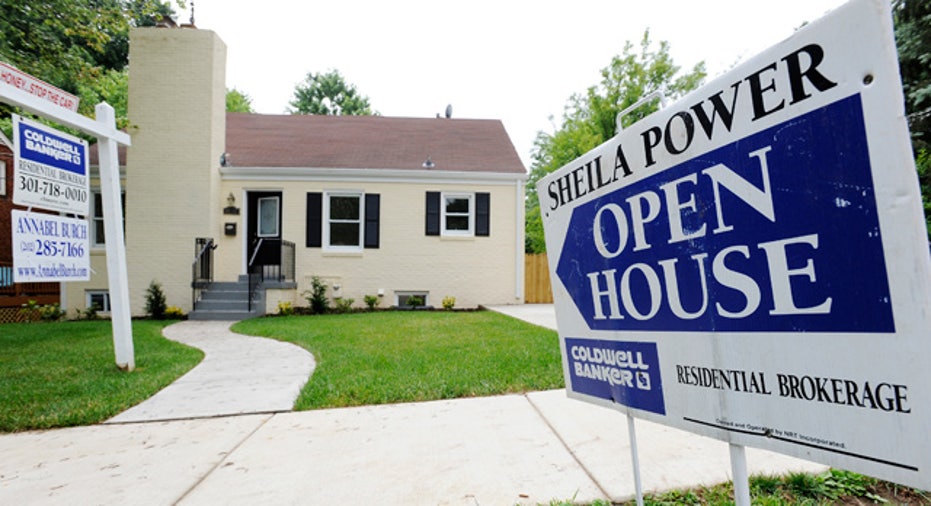Homebuyers, Banish the Drama of Staging

To entice buyers, home sellers use staging techniques. They rearrange furniture to make rooms look bigger and bake cookies to fill the air with a homey aroma. Smart homebuyers look beyond the stagecraft.
"While not all staging is trickery, because the basic premise of staging is to make the home look presentable, buyers need to look past it and get serious," says Karlton Utter, an office manager for Weichert Realtors in East Brunswick, N.J.
He and other real estate experts describe how a buyer can toss the seller's script and perceive the real house under the staging.
Check the Floor Plan
Utter says the buyer should consider whether the home's layout appeals.
"Buyers should be careful to look at what they cannot change in a home or what would be very expensive to change," says Brandon Green, a broker and president of the Brandon Green Companies, an affiliate of Keller Williams Realty in Washington, D.C. "For example, a great kitchen is always appealing, but if it is located in the center of the home and the buyers prefer a front kitchen, that would be almost impossible to change. Another concern would be if the buyers have young children and want them nearby, but the third bedroom is in the basement."
Jonna Morton, a Realtor with Coldwell Banker Residential Brokerage Rockwall, east of Dallas, says some buyers fixate on the idea that they need a big home with large rooms without considering how they will fill them.
"You can't furnish a big house as easily as a small house," Morton says. "Buyers also need to think about the cost of utilities and maintenance on a larger home, especially one with extensive land."
Staging Techniques That Sway Buyers
Green says buyers need to be aware of the gap between how you sell a home and how you live in a home.
"Stagers and builders often remove interior doors to make the home seem airy and open," Green says. "When you put them back on, the rooms can seem smaller and closed off."
Green says stagers often use undersized furniture to make rooms seem bigger while sellers store belongings offsite. Buyers need to know the size of their furniture and the volume of their possessions to see if they will fit in the home.
Evaluate the Condition
Green says buyers should look beyond new paint.
"If the air filter is a disaster, that could be an indicator that the owners have deferred maintenance on the property," Green says. "Buyers should check under the sinks to look for water marks from old leaks and make a list of things to have a home inspector check out more thoroughly."
Utter says buyers should not be shy about moving boxes or checking under an area rug for floor damage or water stains.
Look for Quality
Green says buyers should look for solid doors and to pay attention to the corners of ceramic tile flooring to see that they have been installed carefully. "This is especially important with a recently renovated home, because if the place has been fixed up on the cheap there could be problems that crop up later," Green says.
Morton says buyers should look at the quality of the kitchen cabinets, bathroom vanities and wood trim. "A home that has been solidly built may be a better buy even if it is older, because a cheaply built home will need more work," Morton says.
Check the Lighting
"Come back to the property at different times of day and evening to see how it looks," Green says. "You may not notice that a house doesn't have any overhead lighting until you see it at night."
Utter says buyers should open and close every window to be sure they work as well as to check on the view and the size of the window. Home stagers sometimes place larger curtains over a small basement window to make buyers assume that window is bigger.
Try the Sniff Test
Green says a musty smell in the home could mean there are issues with moisture, but even good scents can indicate a problem. "The overuse of air fresheners can mean that the owners are covering up a bad smell from a damp basement or a dirty fireplace," Green says.
Arrive Prepared
Green suggests that buyers bring a notebook, a tape measure, a flashlight and a camera on their house-hunting trips.
"Think about where you will keep your suitcases if you travel a lot, where you will store your bike or your kid's sports equipment," Green says.
Green reminds buyers that they don't have to do any of this unless they really like a house and are seriously considering making an offer.



















